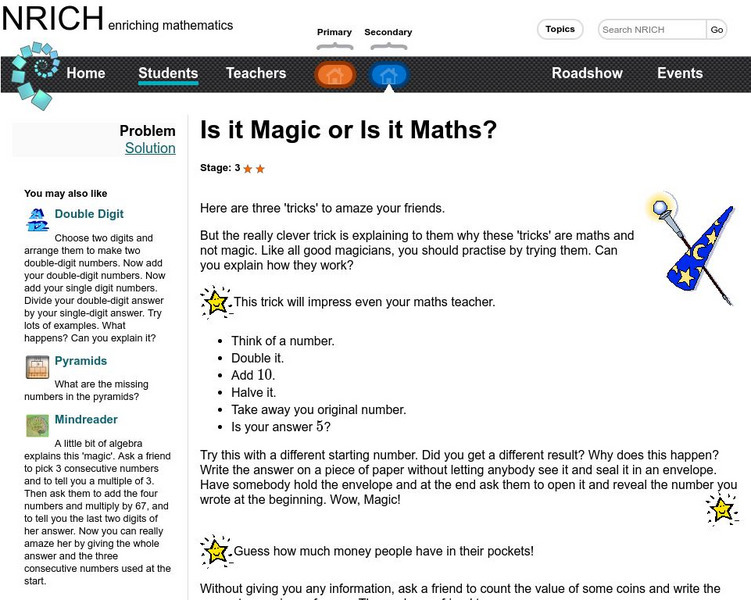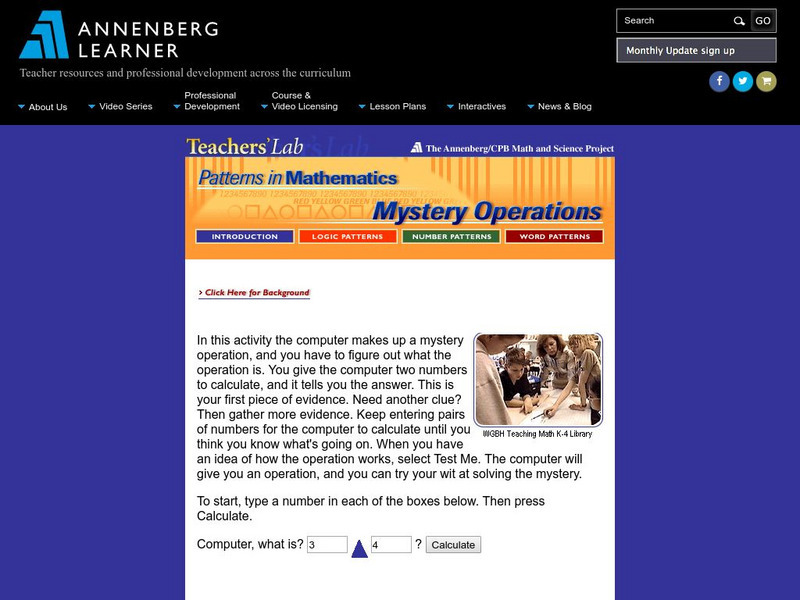Annenberg Foundation
Annenberg Learner: Patterns in Mathematics: How Many Valentines?
Students look for patterns to determine how many valentines will be distributed in a class of 28 students. After trying the problem, they can look at several other methods that could be used and compare the answer they got. There is also...
McGraw Hill
Glencoe: Self Check Quizzes 1 Number Patterns and Problem Solving
Use Glencoe's randomly generated self-checking quiz to test your knowledge of number patterns and problem-solving. Each question has a "Hint" link to help. Choose the correct answer for each problem. At the bottom of the page click the...
University of Cambridge
University of Cambridge: Nrich: Is It Magic or Is It Maths?
On this one page website sharpen your logic and pattern recognition skills while working on this magic challenge. The solution is available to double check your solution.
E-learning for Kids
E Learning for Kids: Math: Penguins: Subtraction Facts to 20
Adelie the Penguin is fishing for her family. Join her and practice solving subtraction facts to 20.
E-learning for Kids
E Learning for Kids: Math: Carnival Parade in Rio: Addition and Subtraction
Help keep the carnival parade safe by helping officer Davi with his addition and subtraction!
Annenberg Foundation
Annenberg Learner: Patterns in Mathematics: Mystery Operations
This interactive activity allows you to change an equation's numbers in an attempt to figure out what operations are being used to control the answers.
E-learning for Kids
E Learning for Kids: Math: Dance Performance: 2 D Shapes and Patterns
Play music and find all the shapes with Malik.
Other
Chili Math: The Distributive Property of Multiplication Over Addition
The distributive property of multiplication over addition allows us to eliminate the grouping symbol, usually in the form of parenthesis. Illustrates the basic pattern or formula and how to apply it.
Other popular searches
- Patterns in Math
- Elementary Math Patterns
- 100th Day Math Patterns
- Farm Animal Math Patterns
- Growing Patterns in Math
- Powerpoint Math Patterns
- Growing Patterns Math
- Math Patterns and Rules
- Math Patterns and Relations
- Number Patterns in Math
- Geometric Patterns in Math
- Inauguration Math Patterns






